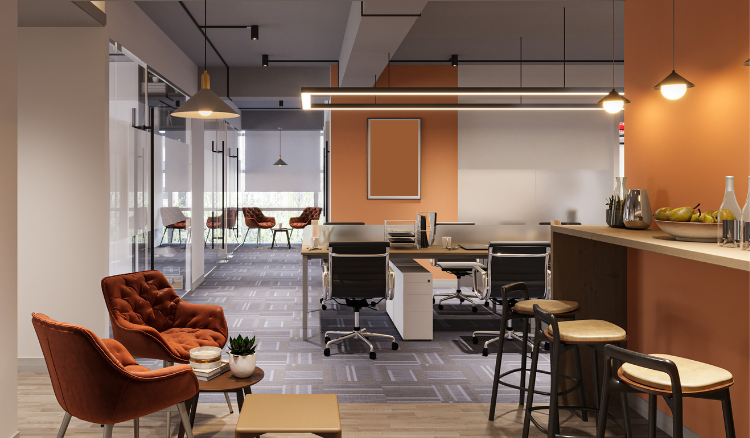In today’s dynamic business environment, the design of a board room goes beyond mere aesthetics. It plays a pivotal role in fostering an atmosphere conducive to productive meetings, strategic discussions, and effective decision-making. This article delves into the evolving landscape of board room design, emphasizing how these changes are not just about visual appeal but are crucial in boosting productivity and enhancing the overall effectiveness of executive gatherings.
Why Board Room Design Matters?
The significance of board room design cannot be overstated. It is the hub where critical decisions are made, strategies are developed, and important discussions take place. The design of a board room directly impacts the mood, engagement levels, and efficiency of its occupants. A well-designed board room can facilitate better communication, encourage collaboration, and create an environment that fosters creative thinking and problem-solving. If you are booking board rooms Chennai or any other cities in India, you can notice that the room has an amplified design.
Optimal design elements such as ergonomic furniture, appropriate lighting, and acoustics not only provide comfort but also reduce distractions, enabling attendees to focus better. The integration of technology, from high-quality video conferencing systems to interactive displays, ensures seamless global communication and efficient meetings. Moreover, the physical space and its ambience reflect a company’s brand and values, leaving a lasting impression on both employees and visitors.
Board Room Design Trends
Advanced Technological Integration
Modern board rooms are increasingly integrating cutting-edge technologies to enhance functionality and efficiency. For example, Cisco’s Webex Room Kit Series offers an immersive video conferencing experience with superior sound and video quality, ideal for facilitating global meetings. Smart glass technology, like that from View, Inc., which turns transparent or opaque with a switch, adds privacy without sacrificing natural light. Additionally, rooms equipped with AI-driven systems, such as the Crestron Flex, can automate lighting, temperature, and AV equipment, streamlining meeting setups.
Ergonomic and Modular Furniture Solutions
The importance of ergonomic furniture in board rooms is paramount for ensuring comfort during long meetings. Herman Miller’s Aeron chairs, known for their ergonomic design and adjustable features, are a popular choice. Regarding modularity, Steelcase’s Flex Collection offers reconfigurable tables and seating that can easily adapt to various meeting types, from formal gatherings to collaborative sessions. This flexibility allows companies to optimize their space for different functions, enhancing usability and comfort.
Enhanced Lighting and Acoustic Design
Lighting and acoustics play a vital role in board room design. The incorporation of LED lighting with adjustable brightness and color temperature settings, as seen in Philips Hue lighting systems, helps in creating the right ambiance for different meeting moods. Acoustic considerations are addressed with products like the EchoPanel from Kirei, which reduces noise levels and reverberation, ensuring clear communication. These elements combined create an environment that promotes focus and effective communication.
Aesthetic and Functional Elements
The aesthetic appeal of a board room significantly impacts the mood and productivity of its occupants. Using color psychology, rooms can be designed with hues that encourage focus and creativity. For instance, a soft blue or green can be calming and help maintain concentration. Functional design is equally important. Companies like IKEA offer smart storage solutions that keep the space organized and clutter-free, contributing to a more focused and efficient meeting environment.
Emphasis on Sustainability
Sustainability is becoming a key factor in board room design. Using eco-friendly materials like bamboo flooring or recycled carpet tiles not only reduces environmental impact but also adds to the aesthetic appeal. Energy-efficient solutions help in reducing energy consumption by adapting heating and cooling based on usage patterns. Incorporating live plants, perhaps through a green wall system like that from LiveWall, improves air quality and adds a biophilic element to the room, enhancing well-being and reducing stress.
Incorporating Biophilic Design
Biophilic design, which incorporates natural elements into the built environment, is gaining traction in board room designs. This approach can be seen in the use of natural wood finishes, plant installations, and maximizing natural light. An example is the Amazon Spheres in Seattle, where the presence of abundant plant life and natural light creates an inviting and refreshing meeting space. This connection to nature has been shown to boost creativity, reduce stress, and improve overall well-being.
Smart Space Utilization
Smart use of space is critical in modern board room designs. For instance, Murphy tables or wall-mounted retractable screens optimize space usage, offering flexibility without compromising functionality. Companies like Resource Furniture specialize in space-saving solutions that are both stylish and practical.
Conclusion
The design of a board room is a strategic asset in the modern corporate world. It reflects a company’s ethos and influences the productivity and effectiveness of high-level meetings. By incorporating these evolving design trends, businesses can create spaces that not only facilitate efficient and engaging discussions but also serve as a testament to their commitment to innovation, employee well-being, and environmental responsibility. As we move forward, the board room will continue to evolve, integrating new technologies and design philosophies, ultimately redefining the landscape of corporate meetings and decision-making processes.
